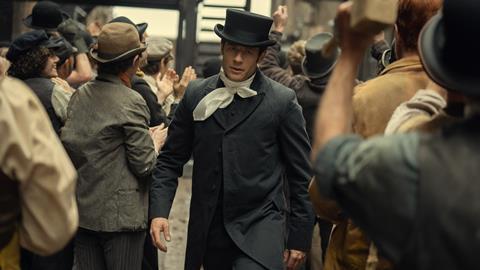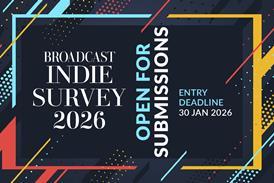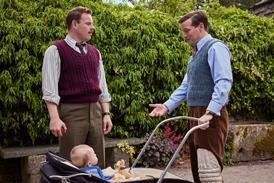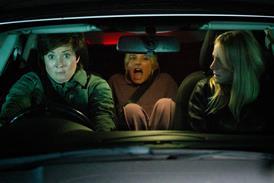“Comparisons to Peaky Blinders are inevitable, but House of Guinness is a self-contained, captivating drama on its own merit”

House of Guinness, Netflix
“The punchy opening episode has some of Stephen Knight’s calling cards: swagger, menace, a modern soundtrack, actors walking in slow motion while wearing stylish hats. But before long, it sinks into traditional period drama territory. Imagine a Julian Fellowes show peppered with the F-word and soundtracked by Kneecap, and that’s about the size of it.”
Anita Singh, The Telegraph
“With flavourings of Downton and Succession (sort of), the mix of familial scheming and wider political ruptures (in this case anti-British hostilities) starts to coalesce like a newly poured pint of the black stuff, and almost without releasing it, you’re drinking it all in — if not downing it wholesale.”
James Jackson, The Times
“There’s a very good argument to dismiss Knight’s work as too same-y. And yes, House of Guinness does bear the same hallmarks that made Peaky Blinders such a TV behemoth – the rollicking soundtrack, the swaggering anti-heroes hiding their emotions under a mask of hyper masculinity, the push and pull between the down and out everyday folk and the capitalists who would throw them under the bus. Some may have tired of this boisterous schtick – but I’m certainly still on board. Comparisons to Peaky Blinders are inevitable, but House of Guinness is a self-contained, captivating drama on its own merit.”
Emily Baker, The i
“As in Succession, or The Crown at its best, the show is alive to the fact that tragedy plus privilege still equals tragedy; it makes us feel the pain of the pampered, or at least be fascinated by it, even if we’re a step removed from it. And what characters the Guinness quartet are, confidently drawn and wisely performed, powering a fine drama about people with flaws they can’t overcome, delusions of qualities they don’t possess, and weaknesses their foes will inevitably exploit.”
Jack Seale, The Guardian
The Hack, ITV1
“ITV is hoping to repeat the success of Mr Bates vs the Post Office by condensing another unwieldy case into a primetime drama. The Hack chronicles efforts to uncover the tabloid phone-hacking scandal. It is written by Jack Thorne, fresh from his success with Adolescence, but he has failed to work the same magic. Essentially it’s The Guardian: The Movie, and it’s cringeworthy.”
Anita Singh, The Telegraph
“The problem is that stitching together a sprawling story as Davies did is, in televisual terms, very boring – especially when played out across a very indulgent seven-hour run. Writer Jack Thorne tries to liven things up with many breakings of the fourth wall by David Tennant – wryly commenting on this and that, looking knowingly at the camera, taking part in little dreamlike sequences – but this only undermines any sense that the writer trusts his story and his viewers and further detaches us from a narrative that until the final couple of episodes cannot build up a head of steam.”
Lucy Mangan, The Guardian
“The Hack is a complicated story, brilliantly told by a group of creatives at the very peak of their powers and Thorne manages to weave the many strands into a galloping narrative spiked with wit and bold emotional flourishes. The press and politicians will be no doubt be watching the audience reaction to The Hack closely. Whatever the outcome, it is TV dynamite.”
Julia Raeside, The i
“The story of phone-hacking, its exposure, and Brian Leveson’s inquiry into the practice is complex. It unfolds on a grand stage across British society and politics, involving a dramatis personae that stretches from Westminster to Fleet Street. And The Hack occasionally stumbles on the detail. Perhaps it would have been anathema to the story they’re telling, but Thorne and co feel too wedded to the truth, faithfully retelling a drama without a clear three-act structure.”
Nick Hilton, The Independent




























No comments yet